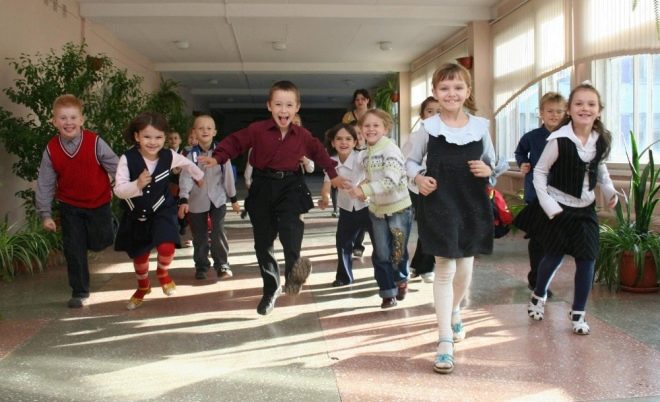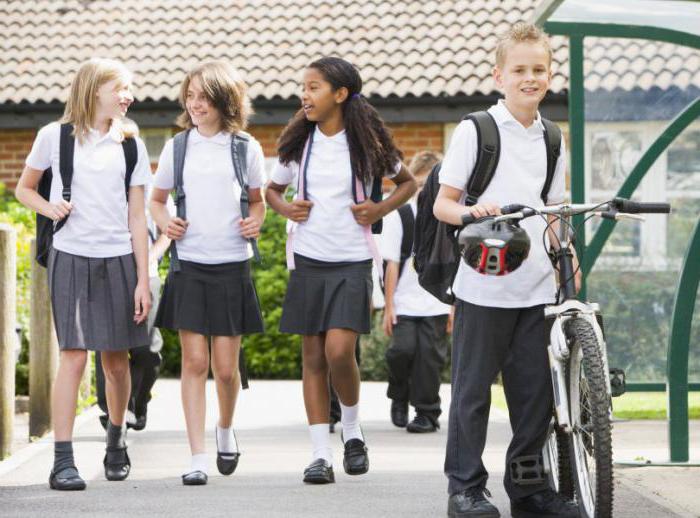The rules of etiquette for children and older children are rules of behavior in society, with peers, with older people, knowing and observing which, the child will not end up in a stupid, ridiculous situation. He will always know how to behave in order to be a well-mannered and polite child, and then an adult. Learning the rules of etiquette is not easy. It's no secret that sometimes adults remain ignorant and rude. And therefore, every adequate parent strives to raise their child as a harmoniously developed personality. However, better than any training will be the personal example of mom or dad. If the family follows the rules of etiquette, good manners and behavior in society, then from birth the baby will collect and absorb the necessary knowledge bit by bit.
What is commonly called etiquette? Society has established certain rules of human behavior, manners, and rules of good manners, which reflect the level of a person’s culture. Under various life circumstances, in various spheres of society, it is customary to follow such rules.
First of all, children need etiquette, since the child will take all the knowledge and skills acquired in childhood into a complex, adult life, where his future will depend on the culture of his upbringing: career, status in society, relationships with people around him. A culturally enriched, polite person always knows how to behave in one place or another, will never experience difficulties in maintaining a conversation, and will behave with dignity in any situation.
A correctly formed attitude towards morality and ethics in childhood facilitates adaptation in society.
In the civilized world, the problem of ethical education is more acute than ever. Modern children think less and less about the rules of good manners, because their always busy parents did not have time to convey to their child the basics of correct, good manners of behavior inherent in a well-mannered person. After all, it is the closest people who are role models and become the first assistants in mastering this skill. Children with cultured and educated parents know and practice the rules of good behavior:
- with older people, peers, strangers, caregivers and teachers;
- at home and in public places (in children's homes, at school, clinics, transport, etc.);
- visiting;
- at the table;
- in a telephone conversation and so on.
If the basic rules of behavior are not instilled in a child in a timely manner, then in society he will experience discomfort, rejection, and withdraw into himself. Then parents will have to solve more serious problems.
When to start teaching your child etiquette
Most likely, every parent himself will feel the moment when his child is ready to understand and accept etiquette training. But already in infancy, children unconsciously absorb emotions received from their parents. Affectionate words, a gentle attitude, a kind voice, smiles - all this helps the baby to grasp a positive attitude in life. Therefore, the sooner relatives begin to introduce a friendly attitude to the child, the easier the process of learning etiquette will be in the future.
Already from the age of one, the child begins to lead an active life: he tries to talk, plays with peers, and begins to walk. Therefore, it can be argued that this is exactly the time to begin the formation of conscious behavior. It's time to teach your baby to understand how to behave by the intonation of his parents' voice. Having become a little older, at the age of two, the child must have minimal table manners and use polite words or gestures when communicating with others.
Conscious, in-depth teaching of etiquette can only be imparted to young children after reaching the age of five. Kindergarten teachers come to help parents. It is extremely important when a child’s good behavior is set as an example to his peers and praised. The desire to behave positively grows, more friends appear, communication brings pleasure.
When a child becomes a schoolchild, the requirements for his behavior in society will increase, life will become more eventful and varied. Parents should use this moment to reinforce instilled good manners. It is necessary to convey to the child that now he is doubly responsible for his behavior, that the attitude of the people around him, his success in school and life in general depends on this.
The task of parents is also to enrich the student culturally. You should try to visit exhibitions, theaters, museums, and cultural events with your child more often.
You should not ignore comments from school teachers about your child’s behavior. And most importantly, at any stage of teaching etiquette to their child, parents themselves should not forget about maintaining good manners and remain a role model in any situation.
At what age should a child be taught rules of conduct?
Psychologists believe that introducing good manners to a child should begin from the first years of life, despite the fact that the conscious age begins at approximately 5 years. From the age of 2-3 years, it is important to tell a child how to behave at the table. At this stage of development, many toddlers are already eating on their own, which means that it’s time to learn the rules of good manners at the table.
Preschool children receive the necessary knowledge primarily from their parents. Later, etiquette is studied in kindergarten. This is how primary socialization takes place. By this age, the child should already clearly understand that there are situations in life in which he should show respect and politeness to his peers and older people.
How to teach your child etiquette
There is no better way to teach etiquette than by the example of mom and dad. Kids copy their loved ones and imitate them. Parents must take strict control of their own behavior: do not shout, do not show rudeness or ignorance. In case of bad behavior of a child, while remaining calm, adults will have to be firm in their words and decisions. There is no doubt that in the future children will show themselves just as calmly in a similar situation.
Repeating polite words whenever appropriate is also learning. It is enough to remind your child that he needs to say hello to his neighbor, say “thank you” after eating, “good night” before going to bed. Over time, this will become a habit, and the child will say such words automatically.
The biggest mistake parents make is “imposing” etiquette. Adults often make rude remarks and constantly reprimand them for various reasons or without them. The baby feels pressure, a confrontation begins. Parents get irritated, angry, insist on their own and end up with a complete denial of any rules by their child.
Training should be carried out unobtrusively, preferably in a playful way. Then the little person will not even feel that the learning process is taking place, he will willingly and happily complete game tasks, mastering the material will go faster and will bring more benefits.
Role-playing with dolls will be very good and effective. Adults need to help the child come up with a game situation: the dolls came to visit the little bear, one behaves well, the other behaves badly; the little bunny plays around when he eats; dolls are going to a ball and much more.
Playing theater will also be effective; you can give your child the opportunity to be both a positive hero and a negative one. It will be beneficial to watch cartoons with your child, which focus on a polite attitude towards others, instilling rules of good manners in which characters are discussed and the peculiarities of their behavior. Don’t forget about reading books: fairy tales, poems, nursery rhymes.
How to arrive?
For first-graders, absolutely everything at school will be new – even how to arrive there correctly. Adults do not think about the fact that this still needs to be learned, but the child should be given a few simple tips.
- The very first thing you should always remember is the neatness of your own appearance. People are greeted by their clothes, but this does not mean that dressing up once is enough - the opinions of others can always change for the worse. Of course, the choice of clothes for attending lessons is hardly within the competence of younger schoolchildren, but it is necessary to teach the child that he bears one hundred percent responsibility for the cleanliness and neatness of his appearance.
- It is better to arrive at school early - there should be at least 10-15 minutes left before the bell rings. This is both a guarantee that there will be no problems due to being late, and a manifestation of respect between people interacting in a team. This rule will certainly be useful to children in adulthood. You also need to rush to school because in recent years many institutions have required you to wear replacement shoes. In winter, mandatory procedures before the start of the lesson also include visiting the locker room.
- In the locker room you should behave politely, do not jostle and not start active games. You can also show politeness by picking up someone else's clothes that have fallen off the rack through no fault of your own.
Speech etiquette for children
Special attention should be paid to speech etiquette in children. Every child must learn the rules of communication with others, according to his age. Speech etiquette includes the following aspects:
- greet acquaintances when meeting, say goodbye when parting;
- use polite words in speech: “thank you”, “please”, “sorry”;
- address adults respectfully, using “you”;
- do not insult other children;
- ask for forgiveness for a wrongdoing;
- do not discuss the behavior of strangers, do not snitch;
- do not interrupt someone else's conversation;
- be able to restrain your negative emotions.
Cultured, well-mannered children will always be understood and heard. Speech etiquette will never lose its relevance, as it is the basis of relationships in society.
Rules of behavior during a school lesson
Children of early school age, as well as children 10-12 years old and older, should know the norms of behavior in a school lesson.
Let's call them:
- You need to sit quietly.
- It is important to listen carefully to the teacher.
- When the teacher enters the classroom, the children stand up.
- If you need to go to the toilet, you need to raise your hand and ask permission.
- You can't talk to classmates.
- If you are asked, it is important to stand up and go to the board.
Each class's rules of conduct may be slightly different. The teacher tells the children about the norms of behavior and monitors their implementation.
Guest etiquette for children
It is extremely important to teach your child the rules of behavior when visiting. It should be explained that when staying in someone else’s house, it is necessary to follow the rules of guest etiquette:
- come to visit only at the invitation of the hosts;
- greet the owners of the house;
- do not be late for the appointed time;
- follow the rules of communication;
- do not touch objects and things in the house without asking;
- do not insist on your desires;
- observe table manners;
- do not run around the apartment, do not scream;
- do not litter, do not throw toys and things around;
- do not stay at a party for a long time;
- thank the hosts for their hospitality before leaving.
It should also be explained to children that the rules of guest etiquette are observed not only by those invited to visit, but also by those who receive guests.
- it is necessary to invite guests in advance;
- meet and greet visitors;
- greet friends with a smile and a good mood;
- explain the rules of conduct in your home.
Rules of etiquette at cultural events
Children 6-7 years old often go with their parents to cinemas, the circus, various concerts or exhibitions. It is important to know how to behave in such a situation.

Let's name the main rules:
- You must not be late for the start of the show.
- Before entering the hall, you need to take off your outerwear if it is a cold season.
- You must enter the hall before the start of the event so that after it starts you do not disturb other people by taking your place.
- If for some reason you were delayed or went to the restroom, you need to return to your seat facing the people sitting.
- Avoid talking during the session or eating popcorn or other food too loudly.
After finishing the program, you should not run to the exit, pushing other people. You should calmly go out with other visitors.
Table manners
While still a baby, the child has already acquired basic table manners: washing hands before eating, using a napkin, knowing how to use cutlery, eating carefully, wishing those around you a bon appetit, saying “thank you” at the end of the meal. The older the child gets, the larger the list of requirements for his behavior at the table becomes:
- you need to start eating after waiting for everyone who is sitting at the table;
- eat silently, do not talk with your mouth full;
- do not indulge at the table, do not play with food;
- do not express your dissatisfaction with the prepared food;
- You can’t put your elbows on the table;
- ask the person sitting next to you to bring the necessary utensils, rather than reaching across the entire table;
- do not leave the table until all family members have finished eating.
Parents should not only instill rules of behavior during meals, but also show by example how this should be done. Subsequently, visiting a cafe with your child or having dinner at a party, adults will have a reason to be proud of raising their son or daughter.
Family behavior
From an early age, it is important to tell your son or daughter that it is worth behaving correctly not only in front of strangers, but also within the family circle. It is important to adhere to the following manners:
- Address older people politely and using “you”.
- You cannot speak rudely and impudently.
- It is not nice to yell at siblings or other family members.
- There is no need to sneak and deceive.
- If you need to enter the room of your parents, older brother or sister, you should definitely knock and ask permission to enter.
- It is necessary to treat family members with respect. If someone is resting, do not make noise.
- Do not interfere with parents' work or household chores.
- In the morning you need to wish good morning, and at night you need to wish good night.
A respectful attitude will prevent conflicts and form trusting relationships between family members.

If a quarrel occurs, it is important to try to make amends for the conflict and ask for forgiveness if it was your fault.
Principles of behavior during recess
Although children go to school for lessons, change has enormous social significance. From the outside, this may seem like a vacation without any additional functions, but in fact, right now the principles of communication with friends and strangers are being laid in the child’s head. It is during recess that children often master the concept of authority, leadership, learn to make acquaintances and maintain a conversation. Therefore, the baby also needs to be prepared for the change.
- At school you always (and especially during recess) need to remember that there are a lot of people around. You should not show yourself to them from the worst side - in particular, you should not shout, or, especially, use rude words. There is no need to fight at school, as in the vast majority of life situations - a conflict or dispute can be resolved peacefully.
- Active games and entertainment in childhood are welcome, but the school corridor is not the best place for such fun. There are quite a lot of different people there, so there is a high probability of accidentally bumping into someone, hitting someone painfully, or hitting yourself.
- The politeness of students towards elders is a characteristic of the school level. You need to say hello to adults, even if you don’t know them, and it is also recommended to let them through the door when you meet them.

Why are standards of behavior important?
Preschoolers do not always behave correctly. For them it is forgivable. Everyone has long known that if the parents have a good upbringing, then the child will gradually learn all the necessary norms of behavior.

It is quite simple to learn the rules of etiquette for schoolchildren. Learning to communicate politely is not at all difficult. Everyone can dress neatly.
Usually parents require their children to behave decently. This becomes important when children find themselves alone in some public place.
It is important to strictly follow the rules of etiquette for schoolchildren at school. Children need to know what to do in a given situation
This is where their maturity is manifested.
Also, do not forget that parents are judged by the behavior of children. Don't make them blush. You need to try to be polite and well-mannered. This is why you should study the rules of etiquette for schoolchildren.





